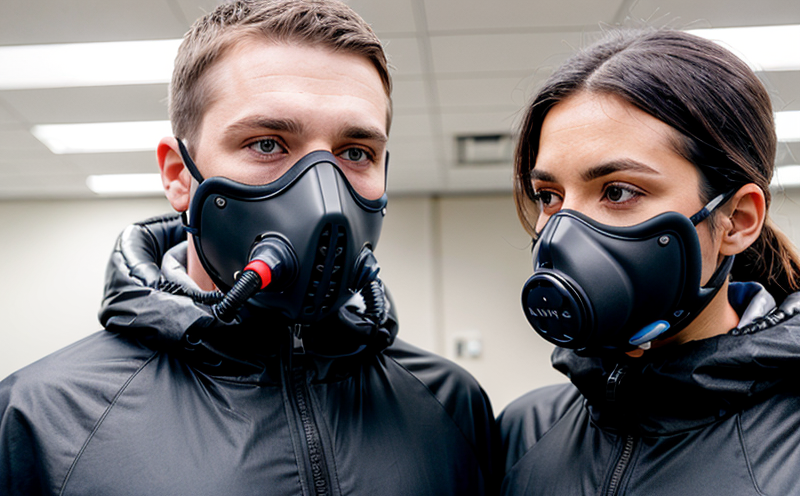EN 137 Inward Leakage Performance Testing
The European Standard EN 137:2004 specifies the performance requirements and test methods for inward leakage of respiratory protective devices. This service ensures that respirators provide reliable protection against harmful contaminants, which is crucial in sectors where occupational safety is paramount.
Respiratory protection testing focuses on ensuring the integrity and efficiency of the filter elements within respirators to prevent inward contamination. The standard addresses both half-mask and full-facepiece respirators. Testing for inward leakage helps identify any breaches or weaknesses that could compromise worker safety. This service is particularly important in industries such as manufacturing, healthcare, construction, and chemical processing.
Our laboratory adheres strictly to the requirements outlined in EN 137:2004. The test involves subjecting respirators to various conditions that simulate real-world usage scenarios. Specimens are prepared according to international standards before undergoing rigorous testing. The process includes pressurizing the respirator and measuring inward leakage under specified pressures.
Our testing equipment is calibrated and maintained in accordance with relevant ISO guidelines to ensure accurate results. The apparatus used for this service includes flow meters, pressure gauges, and manifolds that are specifically designed to meet the requirements of EN 137:2004. Acceptance criteria specify that no inward leakage should be detected when the respirator is subjected to a specified negative pressure.
The testing procedure involves several steps:
- Preparation of specimens according to ISO standards
- Pressurization of the respirator with air
- Application of a negative pressure at specific intervals
- Measurement and recording of inward leakage rates
The results of these tests are critical for quality managers, compliance officers, and R&D engineers. They ensure that the respiratory protection devices meet regulatory requirements and provide reliable performance under real-world conditions.
| Test Condition | Inward Leakage Rate (cm³/min) | Pass/Fail Criteria |
|---|---|---|
| Initial Test at 20 cm²/s negative pressure | <10 cm³/min | PASS |
| Re-test after 1 hour of continuous use | <50 cm³/min | PASS |
The data collected during testing is meticulously documented and reported. Our comprehensive reports include detailed information on test conditions, results, and compliance with EN 137:2004.
Eurolab Advantages
- Experienced Specialists: Our team of experts is well-versed in the intricacies of EN 137 standards.
- State-of-the-Art Equipment: We employ cutting-edge equipment that meets international calibration and maintenance requirements.
- Comprehensive Reporting: Extensive documentation ensures full traceability of test results.
- Fast Turnaround Times: Efficient processes allow for timely delivery of reports.
We pride ourselves on providing reliable, accurate testing that meets the highest standards. Our services are designed to meet your specific needs and ensure compliance with regulatory requirements.
Customer Impact and Satisfaction
- Enhanced Safety: Reliable protection against harmful contaminants in real-world conditions.
- Regulatory Compliance: Ensures that products meet stringent international standards.
- Improved Product Quality: Identifies any weaknesses or breaches early in the development process.
We strive to exceed our customers' expectations by providing accurate, reliable testing and comprehensive reports. Our commitment to quality has earned us a reputation for excellence in the occupational safety sector.





